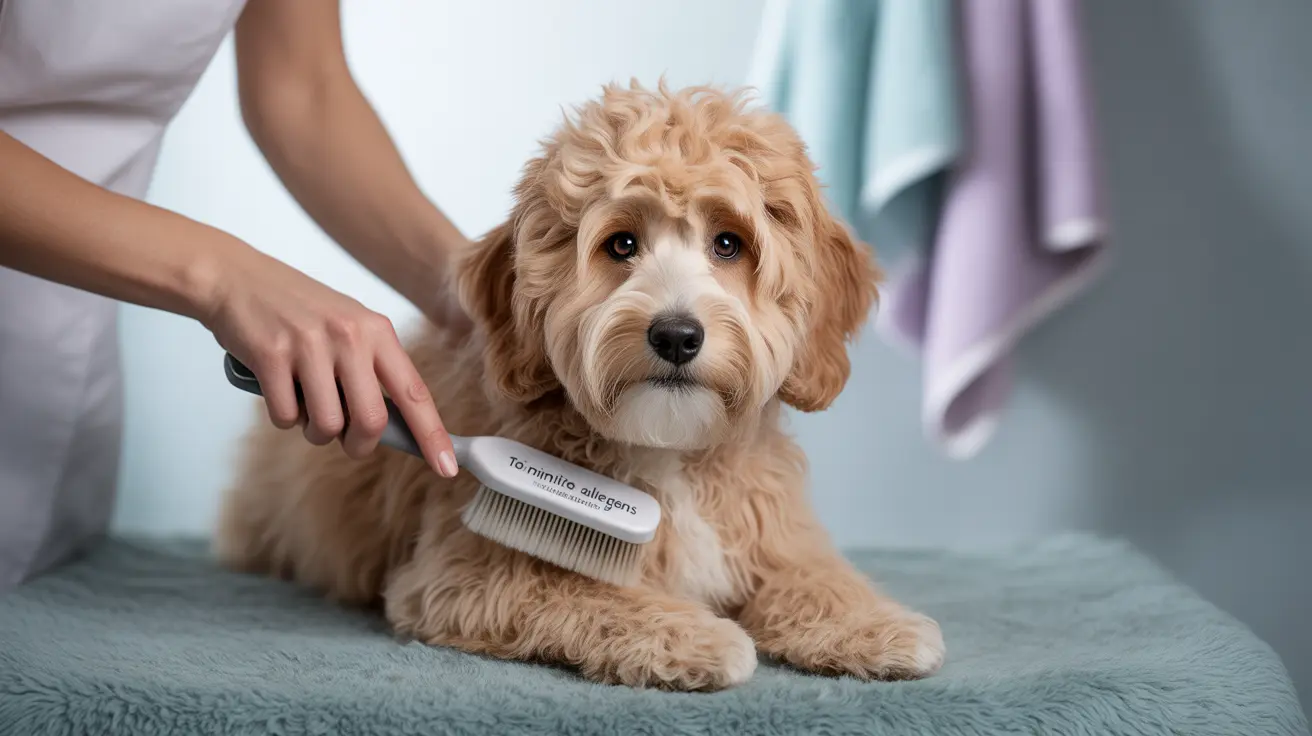Understanding the Mini Goldendoodle's Hypoallergenic Status
Mini Goldendoodles have gained immense popularity among allergy sufferers hoping for a furry companion that won't trigger their symptoms. While these adorable crosses between Golden Retrievers and Miniature or Toy Poodles are often marketed as hypoallergenic dogs, the reality is more complex than a simple yes or no answer.
The term "hypoallergenic" suggests these dogs are less likely to cause allergic reactions, but it's crucial to understand that no dog breed is completely allergen-free. Mini Goldendoodles can indeed be a better choice for some allergy sufferers, but their allergenicity varies significantly based on several factors, including their specific coat type and genetic makeup.
The Science Behind Dog Allergies
Dog allergies are primarily triggered by a protein called Can f 1, found in dog dander, saliva, and urine. While Mini Goldendoodles may shed less than many other breeds, they still produce these proteins. The key difference lies in how their coat type affects the spread of these allergens throughout your home.
Different coat types in Mini Goldendoodles can significantly impact their allergenicity:
- Curly coats (most Poodle-like) tend to shed least and trap more dander
- Wavy coats offer moderate shedding and allergen control
- Straight coats (more Golden Retriever-like) typically shed more and spread more allergens
Managing Allergens Through Proper Grooming
Regular grooming is essential for minimizing allergens in Mini Goldendoodles. A consistent grooming routine helps control shedding and reduces the amount of dander released into your environment:
- Brush your dog 3-4 times weekly (daily for curly coats)
- Schedule professional grooming every 6-8 weeks
- Bathe your dog every 4-6 weeks using appropriate dog shampoo
- Keep the coat trimmed to a manageable length
Creating an Allergy-Friendly Environment
Beyond grooming, maintaining an allergy-friendly home environment is crucial when living with a Mini Goldendoodle:
- Use HEPA air purifiers in main living areas
- Vacuum daily with a HEPA-filtered vacuum cleaner
- Wash dog bedding weekly in hot water
- Maintain dog-free zones, especially bedrooms
- Clean hard surfaces regularly to remove settled dander
Frequently Asked Questions
Are Mini Goldendoodles truly hypoallergenic, and how much do they shed compared to other dogs?
While Mini Goldendoodles aren't completely hypoallergenic, they typically shed less than many other breeds, especially those with curly coats. The amount of shedding varies based on their genetic makeup and which parent breed's coat traits they inherit more strongly.
What coat types do Mini Goldendoodles have, and which is best for allergy sufferers?
Mini Goldendoodles can have curly, wavy, or straight coats. Curly coats are generally best for allergy sufferers as they shed least and trap more dander. Wavy coats are moderately allergy-friendly, while straight coats tend to shed more and may not be suitable for those with allergies.
How often should I groom and brush my Mini Goldendoodle to reduce allergens in the home?
Brush your Mini Goldendoodle 3-4 times weekly at minimum, with daily brushing ideal for curly coats. Professional grooming is recommended every 6-8 weeks, and regular baths every 4-6 weeks help minimize allergens.
Can regular bathing and professional grooming help minimize allergy symptoms from Mini Goldendoodles?
Yes, consistent grooming practices significantly reduce allergens by removing loose hair and dander before they spread through your home. However, be careful not to over-bathe, as this can dry out the skin and actually increase dander production.
What additional home care tips can help manage dander and allergens when living with a Mini Goldendoodle?
Use HEPA air purifiers, vacuum frequently with a HEPA-filtered vacuum, wash dog bedding weekly, maintain dog-free zones in your home, and clean surfaces regularly. Consider using allergen-reducing sprays or wipes on your dog between baths.
Conclusion
While Mini Goldendoodles can be a good choice for allergy sufferers, success depends on choosing the right coat type, maintaining proper grooming practices, and creating an allergy-friendly home environment. Spend time with the specific dog you're considering before making a commitment, as individual reactions can vary significantly.






